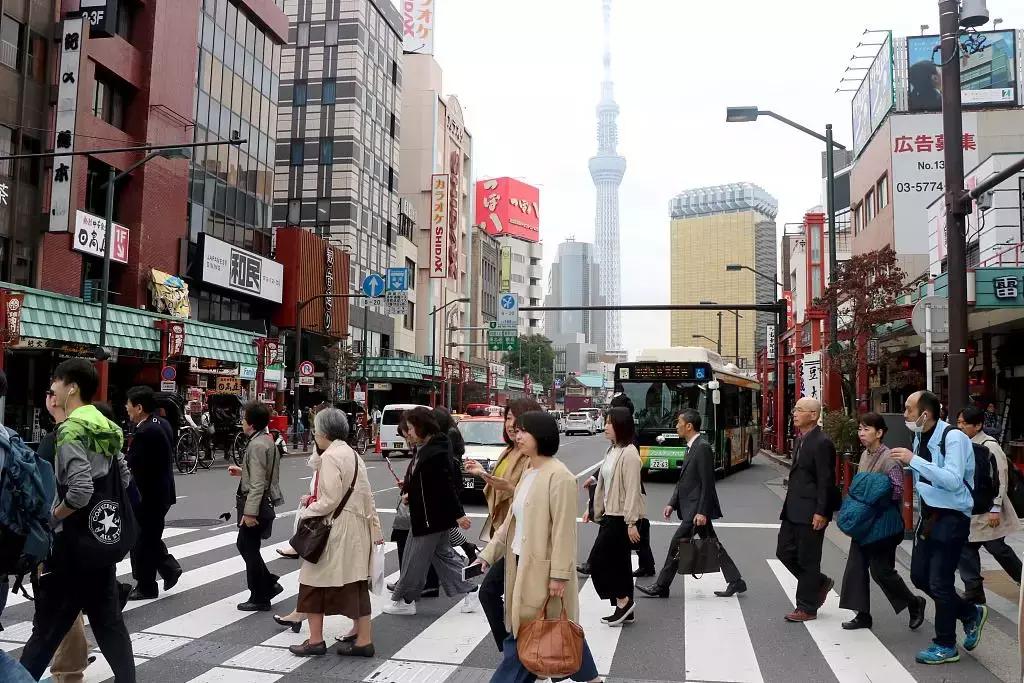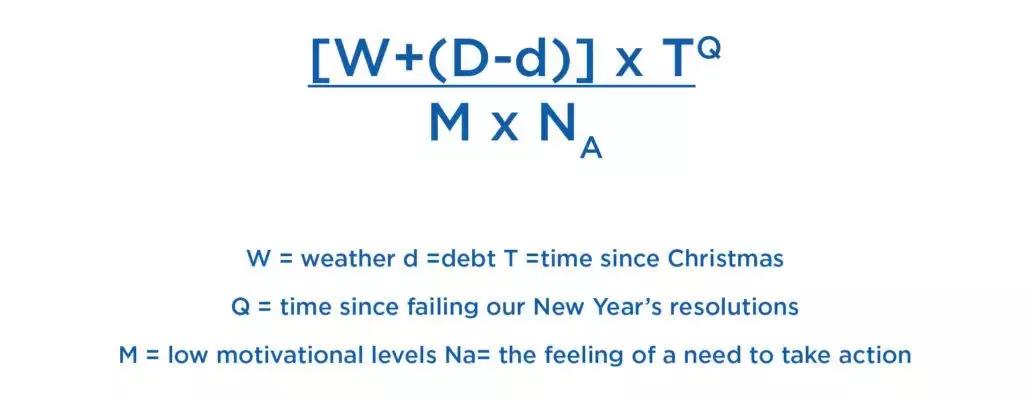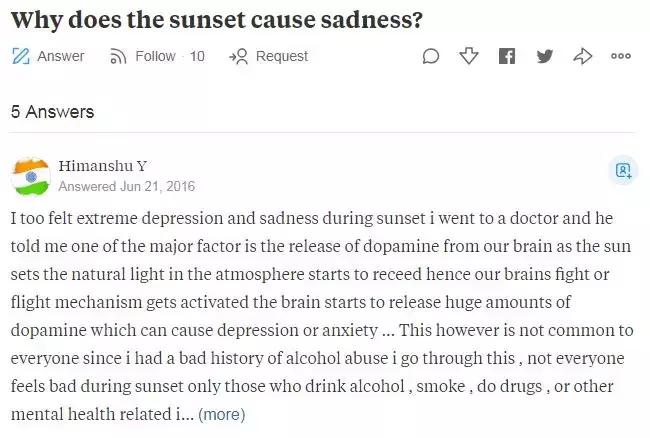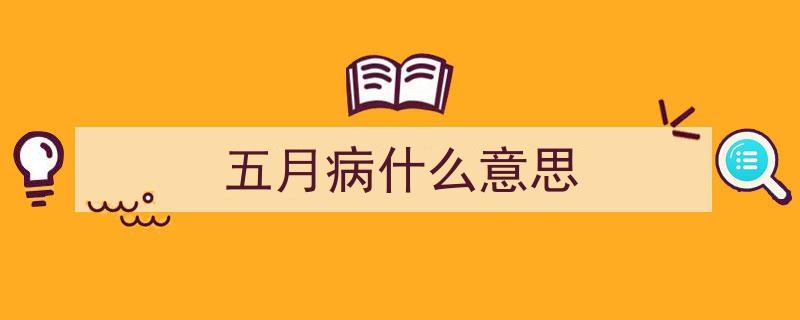
五月带来了假期,但是也要警惕五月潜藏的一个“疾病”—— “五月病”。
最近总感觉懒惰又忧伤?那么你可能得了“五月病”!
什么是“五月病”?

“五月病”来源于日本(名称来自日语“ごがつびょう”)。 在日本,“五月病”指一种常见的轻微抑郁倾向。日本的学生通常在四月份就读新学校或大学,公司的新员工也在四月份入职。随后,在五月初迎来了黄金周长假。假期结束后,人们返回新学校或新单位,但是却不再感觉新鲜或兴奋,反而有一种消极低落的情绪。这种失落的心理状态就被称为“五月病”。
"May Disease," or "Gogatsubyo" in Japanese, is a common kind of minor depression in Japan that usually occurs at the beginning of May.
In April, Japanese students usually start their new lives in universities, while newly hired workers also begin working at new companies. Then there is a long Golden Week holiday at the beginning of May. However, when these newcomers to college campus and company officers finish their long break, there is nothing new or exciting for them. "May Disease" describes this feeling of disappointment or being let down.
“五月病”有什么症状?

心情压抑、兴趣丧失、精力不足、悲观失望、自我评价过低、食欲不振、睡眠困难等,都是“五月病”的常见症状。
根据日本的心理学家介绍,七十年代的时候,“五月病”最初在学生群体中出现,后来越来越多的工薪阶层也出现了这一“病症”。虽然被称为“五月病”,但其实它还未被纳入医学上的疾病范畴。心理学家认为环境的改变是导致“五月病”的“元凶”。
在中国,越来越多的网友也开始认同“五月病”这种说法,觉得自己在五月初这个时间节点非常失落沮丧。学生们不堪毕业论文的重负,或因即将到来的大考而倍感压力;职场上的员工们则是为自己前半年的工作表现感到焦虑。
Symptoms of "May disease" include lack of motivation or a feeling of malaise, poor appetite, difficulty in sleeping and the inability to enjoy pleasurable pursuits.
According to Taizo Sugano, a psychotherapist from Tokyo Counseling Center, "May disease" was first recognized in 1970s in Japan during which this kind of depression was first found in some students. Later, it also became increasing noticeable among salaried workers. But even though it is called "May disease," it is not an official sickness that can be defined in medical terms.
Japanese psychiatrists thought that changes in a person's living or working environment, leading to an accumulation of physical fatigue or stress, caused the depression and apathy among college freshmen and newly-hired workers.
In China, "May Disease" is frequently mentioned by netizens as many said they also felt depressed and disappointed at the beginning of May. For example, students are burdened by the graduation papers or the upcoming important tests, while salaried workers feel anxious about their work performance earlier this year.
非典型性“五月病”症候群
还有不少中国网友调侃一些非典型性的“五月病”焦虑症状。

那些和时间有关的“心理疾病”
蓝色周一 | Blue Monday
“Blue”在英文中,本就有郁闷、忧郁的意思,所以”Blue Monday”通常意思是“沮丧、忧郁的星期一”。
这个词最早出现在1860年代工业革命时期。一位炸药工厂主发现,员工每到星期一复工,就常常出现恶心、呕吐、头晕目眩甚至是昏倒的症状,进入周二周三,症状则逐渐减少,但是到了下周一,又再次循环往复。
后来,这个词便更多用于形容学生、上班族的周一工作日。与欢乐的周末相对比,周一恢复工作的人们心情自然不大好。
不过,“Blue Monday”有时也特指“一年中最忧郁的一天”——即每年一月的第三个星期一。传说在这一天,忧郁会达到顶点……
While "Blue Monday" generally means "a Monday that is depressing" or "trying hard to return to work and routine after a weekend," it is also used as a special term referring to a day in January – typically the third Monday of the month – that's claimed to be the most depressing day of the year.
甚至还有“忧郁日公式”:

黄昏症候群 | Sundown blues
孤独的最高境界中,有一种是这样描述的:
“独自一人在家,在黄昏时醒来,有一种被全世界抛弃的感觉。”
这就是所谓的“黄昏症候群”,形容人在日落黄昏时分,莫名产生的一种抑郁和悲伤感。
Do you feel sad, anxious or depressed when the sun goes down and it gets dark? You don't know why, but somehow the sadness just comes out naturally at this point of a day?
This is called "sundown blues." And you are surely not the only one that has experienced it.
As a year-round condition, it involves increased levels of agitation and confusion in the late afternoon and early evening and has been acknowledged as a medical condition in several countries including the U.S. and UK.
Quora上甚至有人提问,“为什么日落黄昏总会让人难过?”

点赞数最多的写到,在日落黄昏、光线慢慢变暗时,大脑会分泌一种叫多巴胺的化学物质。这种脑内分泌物和人的情欲、感觉有关,分泌过多会导致抑郁症状,包括悲伤和自我否定。
